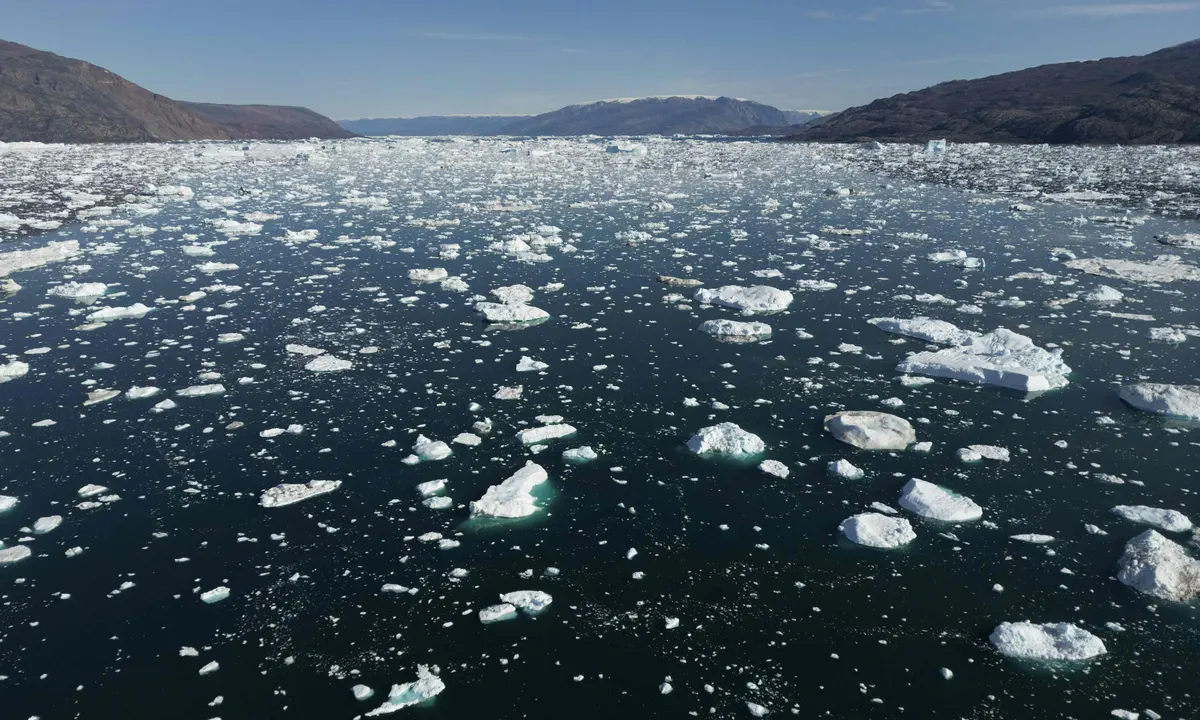The UN report underscores the inadequacy of current carbon-cutting policies, highlighting the urgency to address the intensifying climate crisis.
 As the world stands on the brink of a potentially catastrophic 3C of global heating, the United Nations issues a dire warning just ahead of the crucial Cop28 climate summit set to commence next week in the United Arab Emirates.
As the world stands on the brink of a potentially catastrophic 3C of global heating, the United Nations issues a dire warning just ahead of the crucial Cop28 climate summit set to commence next week in the United Arab Emirates.
The UN report underscores the inadequacy of current carbon-cutting policies, highlighting the urgency to address the intensifying climate crisis.
Warnings of “Hellish” Future
The UN report emphasizes that the world is on a trajectory toward a “hellish” 3C of global heating. In the face of record-breaking temperatures in 2023 and escalating heatwaves, floods, and droughts globally, the report signals a grim reality. The Secretary-General of the UN, António Guterres, has repeatedly stressed the severity of the situation, characterizing the future as “hellish.”
Ineffectiveness of Current Policies
Today’s carbon-cutting policies are deemed grossly inadequate, pushing the world toward the alarming 3C temperature rise within this century. The report points to temperature records already being shattered and the devastating impact of a 1.4C rise to date, with far worse consequences anticipated if the trend continues.
Insufficient Emission Reductions
Despite the implementation of promised future policies by countries, the report indicates a mere 0.1C reduction from the projected 3C limit. Even with emissions cuts pledged by developing nations, contingent on financial and technical support, the expected temperature rise remains at a catastrophic 2.5C.
Urgent Need for Drastic Measures
To align with the internationally agreed target of limiting the temperature increase to 1.5C, the report stresses the necessity of cutting 22 billion tonnes of CO2 from the projected total in 2030. This daunting task represents 42% of global emissions, equivalent to the combined output of the world’s five worst polluters: China, the US, India, Russia, and Japan.
UN Environment Program’s Call to Action
Inger Andersen, the Executive Director of the UN Environment Program (UNEP), emphasizes the need to break away from the status quo of insufficient action. The report, titled “Broken Record,” underscores the importance of setting new records in emissions reduction and climate finance instead of continually setting unwelcome records in emissions, temperature, and extreme weather events.
Guterres Calls for Unprecedented Leadership
Secretary-General Guterres identifies the current trends as leading the planet to a 3C temperature rise, describing it as a failure of leadership and a betrayal of the vulnerable. He urges world leaders to triple renewable energy capacity by 2030, phase out fossil fuels with a clear timeframe, and commit to record emissions reductions. Guterres calls for genuine ambition, action, and an end to greenwashing.
Challenges in Net Zero Pledges
While the report acknowledges that achieving long-term pledges to reach net-zero emissions by 2050 could limit the global heating temperature rise to 2C, it questions the credibility of these pledges. Notably, none of the G20 countries, responsible for 80% of CO2 emissions, are reducing emissions at a pace consistent with their net-zero targets.
Cop28’s Crucial Role
As the world awaits Cop28, Guterres stresses the historic importance of the upcoming summit. He emphasizes the need for countries to unite, act, and deliver outcomes that keep the 1.5C target within reach. While applauding recent climate agreements, he insists that much more must be done to restore trust between developed and developing nations.
Reformation of International Agreements
Experts and leaders, including Tom Mitchell of the International Institute for Environment and Development, call for a reformation of international agreements that favor fossil fuel investors.
The energy charter treaty, enabling companies to sue governments over climate policies, is cited as an example hindering the green energy transition. Reforming such treaties becomes imperative to cut emissions and preserve a habitable Earth for future generations.
As the world braces for Cop28, the urgency of addressing climate change and the need for unprecedented global cooperation loom large. The summit presents a critical juncture for leaders to transcend rhetoric and take bold strides toward a sustainable and resilient future. The stakes are high, and the call for decisive action echoes louder than ever.